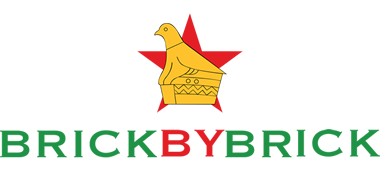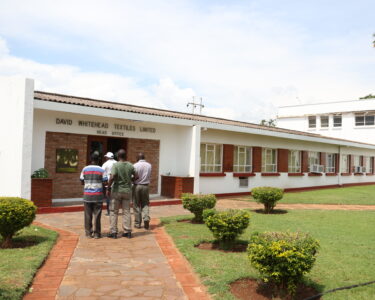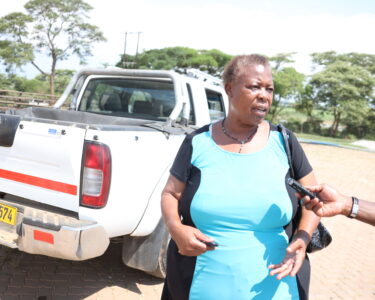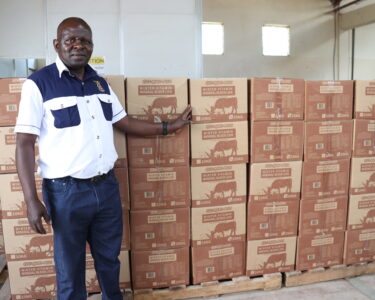On our tour of the Chegutu-based Agric Value Chain (AVC) company, we talked to Zacharia Mupachike, AVC’s supply chain manager, and Phanuel Moyo, the plant responsible manager. They have very interesting views on business and Zimbabwe generally. Here are excerpts.
What are some of the outstanding contributions that AVC is making to Zimbabwe’s economy?
Mupachike: One of our current biggest milestones in terms of the economy is the partnership that our sister companies – AVC, Parrogate, and Pure Oil Industries [which manufactures the Zimgold brand of cooking oil], entered into by contracting farmers nationwide and giving them free seed to grow sunflower. With the Ukraine war, the Covid-19 pandemic, and the other things going on in the world, the cost of cooking oil has gone up. So the three sister companies came together to make sure that Zimbabweans have cooking oil at affordable prices.
Our raw material is sunflower which was once grown in Zimbabwe and we did very well in it long back. As a business, we said “okay, we will give seeds to those who want to farm and then we will buy from them what they produce, in cash.” Currently we are the biggest private sector company in Southern Africa to contract farmers by giving them free seed. We are now sitting on 700,000 hectares of sunflower from 57,000 farmers across the country.
We are not going to deduct the cost of the seed when we buy the crop. We have distributed the free seed virtually across all the provinces of the country. We have done Manicaland, Masvingo, Matabeleland South, Mash Central, Mash East, Mash West. So we’ve covered most of the provinces. As I said, we have registered to date 57,000 farmers who are on board the 700,000 hectares. We will pay US dollars cash for their crop and, I repeat, we will not deduct the cost of the seed we gave them for free.
As a group of companies, we are not just here in Mash West, but Mash West is where it is happening because we did a large investment here last year in terms of bringing in equipment to crush sunflower into edible oil. It is the biggest crusher in the country.
In 2022, we bought over 4,000 metric tonnes of sunflower seeds from farmers, which was a pilot year for us, and we paid cash. We have changed lives and ensured that each household that was part of our programme had cash in their pocket. It assists the youths to stop engaging in drug abuse and villainous activities. So we are now bringing that farming to Chegutu. We are saying, “guys there is some seed here, go and grow it and make your own money. The land is there.”
Is it easy for the youths to get land in the Chegutu area?
Moyo: It is available. Land is available.
Really?
Mupachike: Obviously you go through the channels in terms of application and request for land. But I can safely beat my chest and say we are the biggest company in the SADC region which is contracting farmers for sunflower seed and not deducting any money from their produce. And all that seed, mind you, will be coming to our plant in Chegutu to be crushed.
What this means is that employment in Chegutu will go up, which means more disposable income, which means people can now frequent the shops more than before, which means the local economy will grow, which means prosperity for all.
We are envisioning to invest as much as we can, and with the opportunities that the government has given us, in terms of asset-banding, we are taking full advantage of it, and will make sure that 40% of our raw materials will be locally sourced.
Zimbabwe is portrayed as a difficult place to do business and in fact a lot of Zimbabweans have left to seek greener pastures abroad. But you are expanding, your ETG Parrogate Group is growing. Why are you doing that against the trend of what people are saying?
Mupachike: Can I ask you a simple question? You are in your homestead, locusts come, they eat and kill your entire crop. Do you desert your home because your field has been cleared of maize? Or you say let me grow sweet potatoes so that I don’t desert my household?
What I am just saying is that whatever is said or portrayed about Zimbabwe, it is those who are out of the country who are doing so. Personally, I was born in Zimbabwe, grew in Zimbabwe, I am here in Zimbabwe, and ensuring that the country grows. So, as a business, what we have done is investing in terms of not wanting to get returns now, we are looking to the future.
So if most businesses or all business say, “OK, let’s forfeit certain profits now and re-invest, like what is happening now where most businesses are actually re-capitalising, and in fact there is government assistance available for companies – there is the Presidential Rebate on capital equipment, there is the Manufacturers’ Rebate on equipment, there are so many rebates that are there and a lot of companies are accessing them – this country will grow despite the bad portrayal and negatives said about it.
Moyo: The problem facing Zimbabwe in terms of the negative portrayal of the country comes from the fact that it is we Zimbabweans who are destroying ourselves because of the false information we put out to the world.
I lived in the US and in 2008 I had a friend here in Zimbabwe who was running for political office. I read in the media that his house had been razed to the ground. So I phoned him and said “I am sorry about what I heard, but happy that you and the family are alive”. He then told me that nothing of the sort had happened to him. It was just to feed the press.
Today, as I speak, if I take you to his house, he has a double-storey, the house is still there. But when the world reads things like that – the story said the government put dynamites under his house and razed it to the ground – they see Zimbabwe in poor light.
Just image a Zimbabwean goes to Europe or America or Australia and says, “I am seeking political asylum because my parents were burned in their hut. They were all burnt”. Some Zimbabweans actually go to the extent of undergoing mental therapy in the West, yet knowing that it’s all lies. But would you blame the outside world that is fed with these lies or would you blame the Zimbabweans who feed the outside world with this information?
But to come back to your question of our consortium bucking the trend, let me say the business environment in Zimbabwe is still conducive. That’s why we are surviving here. We are thriving, we are eating, we are investing.
Tell us more about the government rebates. Are they helping business to thrive?
Mupachike: The government is, and always has been, kind to business so much so that law-abiding businesses have tapped into the benefits that are there. And you don’t go through a long process. It is a two or three-week process, from your application to Zimra, from Zimra to the Ministry of Finance, and to the Ministry of Industry and Commerce, and your application is approved.
You take your invoices and other supporting documents, and within three weeks your rebate has been approved. You then go to the port of entry with your application and take delivery of your equipment or whatever. Yes, there is a clause which says you have to have your factory up and running within 6 months, but if you are serious about what you are doing, within 2 or 3 weeks of your equipment arriving, your factory should be up and running.
Yes, Zimra will come and do the inspection to make sure that you are putting the rebate to good use. So as businesses we need to tap into these rebates and make sure that we bring back the glory days of Zimbabwe as the breadbasket of the SADC region. Look I am a 1980s child and I am doing this. If more of us are like that, it will be a different country. We are not leaving Zimbabwe.
AVC has acquired David Whitehead Textiles, you are also doing a quarry, a brick factory, and a hospital – all in Chegutu. Where are you getting the money to do this?
Mupachike: The money is coming from Zimbabwe. It is here. AVC started off as a small company. As a consortium, we have 5 ginneries across the country. But we started very small, we weren’t very big. The same as Parrogate, it wasn’t very big. Pure Oil Industries better known as Zimgold, our sister company, was the same, not very big.
So where does the money come from? Are you not cooking with cooking oil everyday? Are you not washing your clothes? The consortium also does poultry feed. It is those funds that we are re-investing and hope to reap profits 5 or 10 years from now.
Our Group CEO, Mr Pradyumn Kumar Ganediwal [an Indian national] has been investing and growing the businesses since he came to Zimbabwe 20 years ago. He is a visionary. For an example, if you look at David Whitehead, it had been a white elephant for nearly 20 years, but Mr PK (that’s how we call him) saw a vision and said, “there is this massive business next door to my business AVC. There is something we can do. We cannot make kids go to school within David Whitehead and become paupers tomorrow. Why can’t I create employment by making David Whitehead work?”
Are you sure about David Whitehead, for all that has happened there in the past 20 years?
Mupachike: What does David Whitehead do? Textiles. What do we do here at AVC? Cotton ginning. Value addition has been a mantra in Zimbabwe for the past 5 or 10 years. I told you Mr Ganediwal is a visionary and he is looking at value addition in Zimbabwe. We are doing cotton ginning at AVC, so why can’t we team up with David Whitehead and add value and export finished material as we used to do?
Moyo: We are a multi-crushing plant. We crush cotton seed, soya and sunflower, at times we even crush canola. We have now also started a palm nut crushing plant, the first of its kind in Zimbabwe. The palm nuts will come from outside the country, but it will be processed and refined here in Chegutu. We have the capacity to store 2 million litres of palm oil and even increase the capacity.
Our main challenge though is electricity, which is erratic. If we are losing electricity for 8 or 12 hours a day, it takes away from our production. We have engaged ZESA to get an exemption from load shedding as we contribute immensely to the national economy in terms of the cooking oil market.
To solve the problem, we are embarking on an 8.5 MW solar plant that will also feed David Whitehead with electricity across our fence and the surplus will be put into the national grid. The land is already there, and the consultants and experts to do the work have already come on the ground. We will be starting any time from now.
What can the government do to help AVC?
Mupachike: We are a small boy who has grown up fast. I think the government, it’s not a request, in fact we thank the government for the continuous assistance they are giving us as a business, but it is nice when a father comes from time to time to see his child and asks how he is doing. It will be nice to have the President come one of these days or some of his ministers to pay a courtesy call. There are concerns which we might have but we want to address them directly to the government.
We’ve been talking this morning about a hospital. We’ve been talking about David Whitehead and the community at large. As a business, we see ourselves as an arm that assists people, that does CSR [corporate social responsibility]. We don’t have an endless source of money, and there are some government waivers that we are using and still want to use for the hospital.
We want to bring a state-of-the-art hospital here in Chegutu, so we have been talking about how a PVO [Private Volunteer Organisation] status will help immensely in realising the hospital project. We want the hospital to be self-funding and the primary school at David Whitehead to benefit the community. So we need our PVO application to be granted, but there has been a huge delay.
However, so far, we are very appreciative of the government support. Even the various ministries and departments have given us support too. Looking at our sunflower seed programme, Agritex has given us all the ground staff to assist us nationwide. We can’t thank them enough.
Moyo: On the hospital project, we need to mention that we are behind by over 2 years because there has been quite some delay in approving our PVO application. We have even containers of equipment that came almost 2 years ago for the hospital. We had to pay millions of dollars for duty and if you add the cost of the storage of the equipment, you can see how much we have spent. And yet the project has still not started because of the PVO.
We had calculated that by the time the equipment comes, the hospital will be up and running. So we look at the 2-year delay as being a loss. We would, therefore, like to appeal to the government to help us implement the hospital project by approving our PVO, because this type of project will help the generality of citizens in the country, from the bottom rungs to the very top. So, instead of flying to India and South Africa in an emergency, you can just drive to Chegutu. So it is an important project that should be given priority in terms of the paper work that we are seeking for.
What kind of advice would you give to investors who want to invest in Chegutu or in Zimbabwe generally?
Moyo: Zimbabwe is a friendly country, which is moving up the ladder. Most people don’t look at the GDP figures, but I looked at them last night: Zimbabwe is at number 12 on the Top 15 fastest growing economies in Africa. So we are doing well, and investors should take that into consideration.
Mupachike: I would ask foreign investors flying to Zimbabwe to go and sit at, say, Chicken Inn or any other place at the Harare city centre for just 2 hours, and what they will see there will change the negative perceptions they may have.
Fortunately, I had the privilege of working for a British company and I have travelled. So I will not go in terms of the GDP figures or profits. But I will go in terms of peace of mind. Zimbabwe is the only country I know, I stand corrected, where you can walk around until 1 am, in certain areas obviously, and not find any issues.
Zimbabwe is a place where you are always welcome as a foreigner. You guys have travelled – how many times have you been asked for your passport in foreign countries? But how many times are foreigners in Zimbabwe even asked for their driver’s licence?
So the mantra which says “Zimbabwe is open for business” is not just business as in transactions, but also peace of mind. Thankfully, there is a new vision which says, “we are growing, we are coming, so watch out! We will tap all the minerals we have. We are quietly building, brick by brick.





